The travel industry is undergoing a transformation, driven by evolving consumer habits and groundbreaking marketing innovations. In 2025, digital marketing is not just a support function—it is at the core of how travel brands attract, engage, and convert audiences. Let’s explore the key trends and strategies that are redefining travel marketing and creating new opportunities for businesses in the sector.
The Rise Of AI And Data-Driven Strategies
Personalization And Smart Recommendations
Artificial Intelligence (AI) is revolutionizing how travel companies interact with their customers. With access to vast amounts of user data, travel brands can now offer personalized recommendations based on past behaviors and preferences. AI-powered tools analyze customer search patterns and booking histories to generate tailor-made itineraries. This level of personalization ensures that potential travelers receive relevant content and offers, making the decision-making process much smoother.
Chatbots And Virtual Assistants
Smart chatbots have become invaluable for travel agencies and tour operators. These virtual assistants provide instant responses to customer inquiries, from flight details to hotel availability, 24/7. By handling routine questions, chatbots free up human agents to deal with more complex issues. Additionally, advanced conversational AI can guide users through the booking process, ensuring a seamless experience that increases the likelihood of conversion.
Social Media As A Primary Marketing Channel
Influencer Collaborations And Authentic Storytelling
Social platforms continue to evolve into powerful marketing tools. Influencer collaborations have emerged as one of the most effective ways to build trust and credibility. Influencers, who are seen as authentic voices in the travel community, create engaging content that highlights real experiences and genuine recommendations. This type of storytelling resonates with audiences, sparking interest and inspiring followers to explore new destinations.
User-Generated Content And Community Engagement
The role of user-generated content (UGC) is becoming increasingly prominent. Travelers now trust content created by peers more than traditional advertising. Companies are leveraging UGC by encouraging customers to share photos, reviews, and travel stories online. Campaigns that incorporate hashtags and interactive challenges not only boost engagement but also provide a continuous stream of fresh content that can be repurposed across marketing channels. This approach not only enhances brand credibility but also builds a vibrant community around the travel experience.
Immersive And Interactive Experiences
Virtual Tours And Augmented Reality
In 2025, virtual tours and augmented reality (AR) are taking center stage. By offering immersive experiences, travel brands can virtually transport potential customers to destinations even before they book a trip. AR applications allow users to visualize a hotel room, explore a landmark, or even experience a local festival from the comfort of their homes. These interactive tools not only captivate audiences but also help reduce the uncertainty associated with travel planning.
Interactive Content And Engagement
Interactive content, such as quizzes, polls, and live Q&A sessions, has proven to be highly effective. Travel companies are incorporating these elements into their digital campaigns to engage audiences in a dynamic way. For example, interactive quizzes that match users with their ideal destination or virtual scavenger hunts in popular tourist spots create memorable experiences that deepen customer engagement. Such initiatives encourage shares on social media, boosting brand exposure and attracting new customers.
The Impact Of Mobile-First Marketing
Responsive Design And App Optimization
With an ever-increasing number of users relying on smartphones for travel planning, mobile optimization is critical. Websites that feature responsive design ensure that content is easily accessible on any device. Travel apps are becoming sophisticated hubs for bookings, reviews, and personalized recommendations. Features like push notifications alert users about last-minute deals and exclusive offers, keeping the brand top-of-mind during the decision-making process.
Location-Based Services
Mobile marketing goes beyond just having a mobile-friendly website. Location-based services allow travel brands to offer hyper-local promotions and real-time recommendations. By leveraging GPS data, companies can send targeted offers to users who are nearby popular attractions or who have recently visited a particular destination. This strategy not only enhances the customer experience but also drives higher conversion rates by connecting users with relevant and timely offers.
Measuring Success And Adapting Strategies
Analytics And Performance Metrics
The evolution of digital marketing brings with it advanced analytics tools that provide insights into consumer behavior and campaign performance. Travel brands use platforms like Google Analytics, SEMrush, and proprietary dashboards to track key performance indicators (KPIs) such as organic traffic, engagement rates, and conversion rates. Data-driven insights allow marketers to refine their strategies in real-time, ensuring that resources are allocated effectively and that campaigns are continually optimized for better results.
Agile Marketing And Continuous Improvement
The fast-paced nature of digital marketing in travel demands an agile approach. Brands are now experimenting with new formats, platforms, and technologies while remaining open to feedback from customers. This iterative process means that strategies are continually tested, analyzed, and improved upon, keeping the brand ahead of the curve in a rapidly evolving industry.
Conclusion
In 2025, digital marketing is a fundamental driver of growth and customer engagement in the travel sector. From the power of AI in personalizing experiences to the authenticity of influencer collaborations and the immersive potential of AR, the future of travel is being shaped by innovative marketing strategies.At Travel & Tours Digital Marketing, we are committed to helping travel businesses navigate these transformative trends. By adopting these proven SEO and digital marketing tactics, your travel brand can successfully chart a course through the complexities of modern travel planning and capture the hearts of adventurous travelers around the world.




















